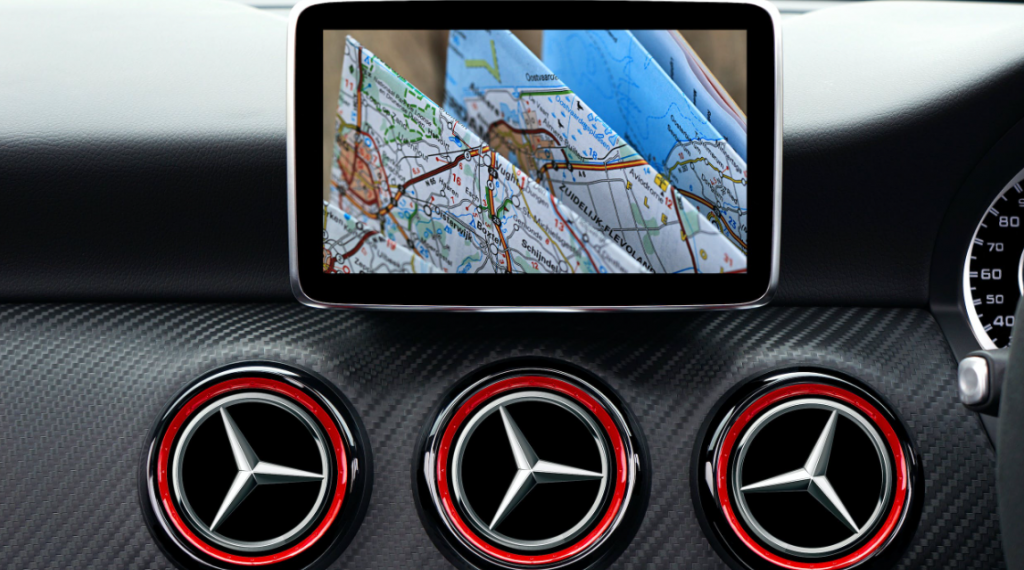
Navigating the Trails: The Best GPS and Navigation Devices for Outdoor Excursions
In today’s fast-paced world, outdoor enthusiasts and adventurers seek to immerse themselves in nature and explore the wilderness. Whether it’s hiking through rugged terrains, camping under starlit skies, geocaching treasure hunts, or embarking on off-road driving expeditions, navigating the great outdoors demands proper planning and reliable tools. In this article, we will dive into the world of GPS and navigation devices, which are the essential companions for any outdoor excursion, ensuring safety and successful exploration.
Understanding GPS and Navigation Devices
How GPS Works
Global Positioning System (GPS) is a network of satellites orbiting the Earth, constantly transmitting signals to GPS receivers. These receivers then calculate the user’s precise location based on the time it takes for signals to reach multiple satellites. With this data, GPS devices can determine latitude, longitude, altitude, and speed, providing accurate positioning information.
Types of Navigation Devices
Various GPS and navigation devices cater to different outdoor activities. Handheld GPS units are popular among hikers and campers for their portability, while GPS watches are preferred by runners and cyclists. In-car GPS devices are essential for off-road drivers, while marine GPS units assist boaters and anglers in navigating waterways.
Features to Look for in a GPS Device
When choosing a GPS device for outdoor excursions, several features are crucial. A high-resolution and sunlight-readable display allows easy reading in various lighting conditions. Long battery life ensures uninterrupted use during extended trips. Waterproof and rugged designs protect the device from the elements and accidental drops. Additionally, preloaded topographic maps and the ability to add custom maps enhance navigation capabilities.
Top GPS and Navigation Devices for Outdoor Activities
Let’s explore some of the best GPS and navigation devices available for outdoor enthusiasts:
Garmin GPSMAP 66i
Garmin GPSMAP 66i is a versatile handheld GPS with inReach satellite communication capabilities. It allows two-way messaging, SOS alerts, and weather updates even in remote areas.
Magellan TRX7 CS
Magellan TRX7 CS is tailored for off-road enthusiasts, providing detailed off-road maps, trail recording, and community-generated trail content.
Garmin inReach Explorer+
Garmin inReach Explorer+ combines GPS navigation with global two-way messaging and SOS functionality, ideal for adventurers exploring beyond cell coverage.
Suunto Traverse Alpha
Suunto Traverse Alpha is designed for hunters and anglers, offering specialized features such as moon phase calendar, shot detection, and breadcrumb navigation.
SPOT Gen4
SPOT Gen4 is a compact and affordable GPS tracker that allows users to send pre-programmed messages and share their real-time locations with family and friends.
Garmin eTrex 32x
Garmin eTrex 32x is a budget-friendly option featuring a 2.2-inch color display, preloaded TopoActive maps, and a long-lasting battery.
Backcountry Navigator XE
Backcountry Navigator XE is a mobile app for Android devices, offering offline maps and advanced navigation tools for hikers and explorers.
Satmap Active 20
Satmap Active 20 is a handheld GPS with a large touchscreen, Bluetooth connectivity, and detailed mapping options for outdoor activities.
Comparison and Analysis of GPS Devices
To find the most suitable GPS device, it is essential to compare and analyze their features and performance. Here are some key factors to consider:
Performance
The accuracy and speed of acquiring satellite signals impact a GPS device’s performance. High-quality devices lock onto satellites quickly and maintain a stable connection, even in challenging environments like dense forests or deep canyons.
Battery Life
Battery life is crucial, especially for extended outdoor trips. GPS devices with longer battery life or the ability to use replaceable batteries ensure continued functionality throughout the journey.
Durability
Outdoor adventures can be demanding on devices, so rugged construction and water-resistant or waterproof designs are essential to withstand harsh conditions.
User Interface
An intuitive user interface with easy-to-navigate menus and customizable settings enhances the user experience, allowing adventurers to focus on their journey rather than struggling with the device.
Mapping Capabilities
Detailed and up-to-date maps are vital for accurate navigation. Devices with preloaded topographic maps or the ability to add custom maps are advantageous for various terrains.
Best GPS Devices for Specific Outdoor Activities
Different outdoor activities have unique navigation requirements. Let’s explore the best GPS devices for specific pursuits:
Hiking and Trekking
For hikers and trekkers, handheld GPS devices with long battery life, preloaded maps, and breadcrumb tracking are recommended. Additionally, some devices offer features like altimeters and barometers to monitor elevation changes and weather conditions.
Camping
Campers may benefit from GPS watches with navigation features, as they offer comfort and convenience while providing necessary information for safe navigation in unfamiliar locations.
Geocaching
Geocachers can utilize handheld GPS devices with geocaching-specific features, such as paperless geocaching and the ability to download geocache data.
Fishing
Anglers can opt for GPS devices with waterway maps, fish finders, and tide data to identify fishing spots and improve their chances of success.
Off-Road Driving
Off-road drivers should consider in-car GPS units designed for rugged use, featuring off-road mapping, real-time tracking, and turn-by-turn navigation.
Factors to Consider When Choosing a GPS Device
Choosing the right GPS device for your outdoor adventure requires thoughtful consideration of the following factors:
Budget
Determine your budget and explore GPS devices that offer the best features within your price range.
Signal Coverage
If you plan to venture into remote or off-grid areas, opt for devices with reliable satellite communication capabilities.
Screen Size and Resolution
A larger and high-resolution screen provides clear and detailed maps, making navigation easier.
Weight and Portability
Consider the weight and portability of the device, especially for activities that involve carrying it for extended periods.
Additional Features
Some devices offer additional features like wireless connectivity, activity tracking, and camera integration, enhancing the overall outdoor experience.
Tips for Effective Navigation in the Outdoors
Navigating the wilderness demands preparation and skill. Here are some essential tips for effective navigation:
Pre-Trip Planning
Plan your route in advance, familiarizing yourself with the terrain, potential hazards, and available resources.

Understanding Topographic Maps
Learn to read and interpret topographic maps to understand the landscape’s features and elevations.
Calibrating the GPS Device
Calibrate your GPS device before starting your journey to ensure accurate positioning.
Marking Waypoints and Routes
Mark important waypoints and create routes on your GPS device to follow a planned path and easily return to the starting point.
Using GPS in Emergency Situations
Familiarize yourself with the emergency features of your GPS device, such as SOS alerts, to seek help in critical situations.
Maintenance and Care of GPS Devices
Taking care of your GPS device ensures its longevity and reliability. Consider the following maintenance tips:
Cleaning and Protecting the Device
Regularly clean the screen and casing of your GPS device to prevent dust and debris buildup. Use screen protectors and protective cases to shield the device from scratches and impacts.
Software Updates
Keep your GPS device’s software up to date to access the latest features, maps, and bug fixes.
Battery Maintenance
Follow manufacturer guidelines for battery maintenance, such as charging and storing the device properly.
Storage and Transportation
Store your GPS device in a safe and dry place when not in use, and secure it during transportation to prevent damage.
Conclusion
In conclusion, GPS and navigation devices are indispensable tools for outdoor enthusiasts embarking on adventures in nature’s playground. From handheld GPS units to GPS watches and in-car navigation devices, the market offers a diverse range of options to cater to different activities and preferences. When choosing the best GPS device for your outdoor excursion, consider factors like performance, battery life, durability, user interface, and mapping capabilities. With the right GPS device in hand and the knowledge to navigate effectively, you can confidently explore the trails and immerse yourself in the wonders of the great outdoors.
FAQs
- Q: Can I rely solely on my smartphone for outdoor navigation?A: While smartphones offer GPS functionality, dedicated GPS devices have advantages like longer battery life, ruggedness, and specialized features for outdoor activities.
- Q: Is it necessary to have cellular service for GPS devices to work?A: No, GPS devices work based on satellite signals and do not require cellular service for basic positioning. However, some GPS devices with advanced features may use satellite communication networks, requiring a subscription plan.
- Q: Can I use GPS devices in extreme weather conditions?A: Many GPS devices are designed to withstand harsh weather conditions, but it’s essential to check the manufacturer’s specifications for the device’s operating temperature range and water resistance.
- Q: How accurate are GPS devices in remote areas with limited satellite visibility?A: GPS devices’ accuracy can be affected in areas with obstructed views of the sky, such as dense forests or deep canyons. However, modern devices use multiple satellite systems (e.g., GPS, GLONASS, Galileo) for improved accuracy.
- Q: Are GPS devices challenging to use for beginners?A: GPS devices offer varying levels of user-friendliness, but most manufacturers provide comprehensive user manuals and online resources to help beginners get started. Practice and familiarity with the device will improve navigation skills over time.



